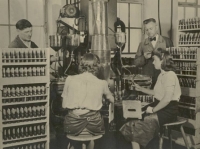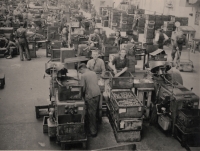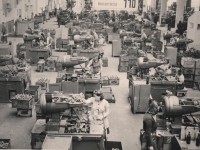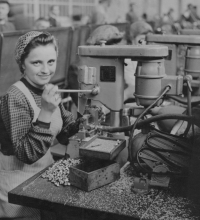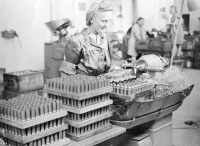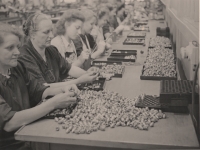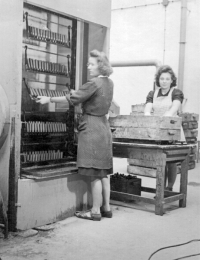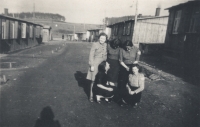A young man can endure anything
Stáhnout obrázek
Emilie Vančurová, née Marková, was born on 25 December 1921 in the village of Bošice in Šumava. She came from a poor background. Her family had a small farm on where her mother, Marie Marková, née Narovcová, worked. Her father, František Marek, a retired Austrian dragoon, worked as a bricklayer and facade maker after the World War I. After finishing primary school in 1935, Emilie Vančurová had to join the service of a farmer. Between 1942 and 1945 she was totally deployed in the German munitions factory MWH in Holýšov (Holleischen), where aircraft and anti-aircraft munitions were produced. In Holýšov she met Italian and French prisoners of war. In the spring of 1945, she left Holýšov on her own and went home to Bošice. After the liberation, American soldiers stayed with the her family for a few days. In 1947 she married Petr Vančura, with whom she had three children. In 2022 she lived in Čkyně.
